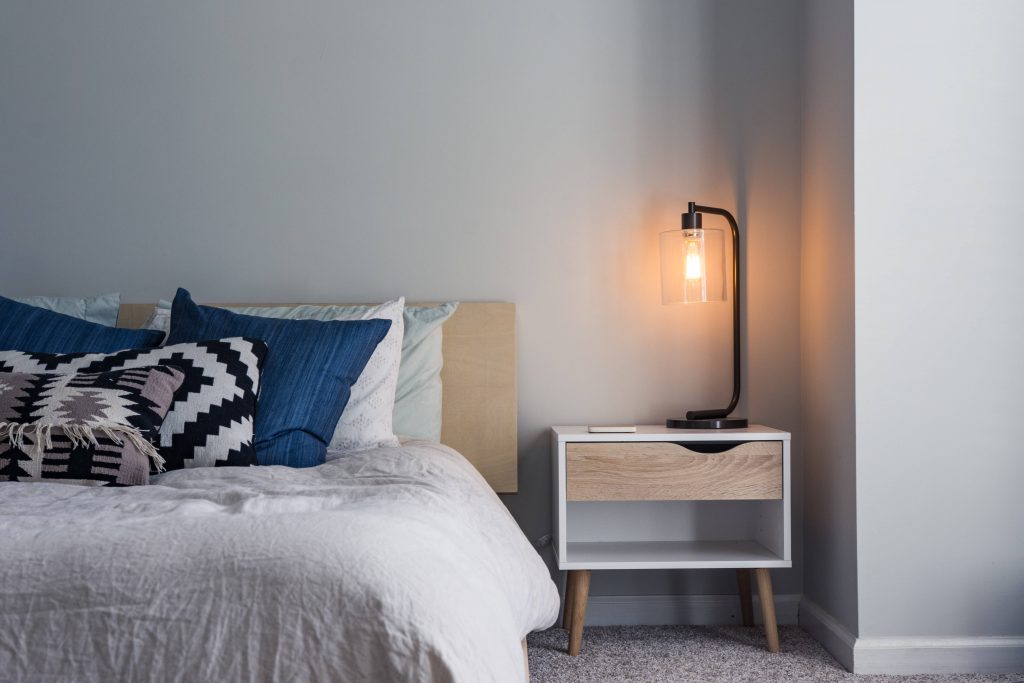Feng Shui is a term a lot of us hear, but not many of us know exactly what it is, and how it can be used. In today’s article, I will be breaking down Feng Shui and giving you some ideas of how you can implement it within your own home.
Feng Shui principles can be applied to all parts of life, including your interior design. First, I’ll explain to you what Feng Shui is. Then, I’ll take you through the basic principles. Throughout, I’ll give you some ideas for how to incorporate them into your house. Finally, I’ll touch on a few things you should avoid when practicing Feng Shui. Read on to find out more!
What Does ‘Feng Shui’ Mean?
The term is Chinese in origin and translates directly to ‘wind’ and ‘water’. Even with the translation- the term can still make little sense. As a metaphorical translation, however, it is a reference to a poem on how humanity connects and flows with the environment that surrounds them.

So, Feng Shui is simply about creating an environment that puts you at peace and positively affects your energies. It draws upon different elements; wood, fire, earth, metal, and water, and how these can affect your space. Additionally, Feng Shui focuses on creating energies; for example; wealth, fame, partnership, family, tai chi, children, knowledge, career, and helpful people.
Different Ideas
There are several ideas used in Feng Shui. For the sake of simplicity, in this article, we will be focusing mainly on how Feng Shui can be used in the bedroom.
Commanding Position
The commanding position is a key position. It is how it sounds. It’s all about keeping you in control of your environment. Often it refers to the position of certain objects, such as the bed, and how they are representative of you.
For example, if you were to place your bed, you would want to have the headboard face the door without being directly in front of the door. It is far better to place it this way, as it allows you to feel consciously safer, you can see if anyone comes in.

Additionally, this principle could apply to the position of your desk. If you consider your desk as a representation of your ambition and career goals, you may want to place it so that your back is to the wall, diagonally if possible. You should be able to see your room spread out in front of you. This is the same concept as the placing of the bed, you can see anyone who enters- and have more authority over the room as a whole.
In summary, this position is all about being confident and in control of the environment to reach a better version of yourself.
Colors and their meanings
In Feng Shui, colors have different connotations. For example, if you want a calm, soothing room for sleeping, you may look towards painting it in earthier colors. They are seen as relaxing and supportive, perfect for your bedroom.
If you’re looking to bring a little more love into your bedroom, then pink is likely the way to go. It is thought to help aid the chance of finding love. On the other hand; if you want to focus on increasing your knowledge, or practicing skills, then you may want to go for dark colors such as indigo. These are inward thinking colors, encouraging you to become more introspective.
As you can see, every color has its connotations and ways it can aid you in your life. However, the consensus is to not overload the areas in your life you want to improve. This can affect your focus, and, in the sense of colors, you’d end up with a real clashing mix!
Definite no-goes for Feng Shui
There are some definite taboos when using Feng Shui, here are just a few!
- Do not place your bed facing the bathroom door. This is a big one. It is believed to have horrible complications for your health. Germs can travel from the bathroom and reach you in your bed. This also applies if your bed is against the same wall as the bathroom.
- Limit the electric devices in your bedroom. This is also supported by scientific studies. Devices left in your room can emit electromagnetic fields, which can disturb sleep.
- Keep things as even as possible when planning a layout. For example, f you have a table on one side you may want to lay another out too. This means your brain should be far more balanced and in order, just like your room.
- In the bedroom, try not to place any mirrors. Of course, there are many suspicions over mirrors and their negative energies. In Feng Shui it is also thought a mirror in the room can disrupt the quality of sleep.
- If a bad event has occurred in your bed, or you or your partner have been very sick in it, consider getting a new bed. Of course, this isn’t always possible or sustainable. If this is the case- just keep an eye on your Chi, and maybe freshen up the bed a little to symbolize a fresh start.
Conclusion
As you can see, there are vast arrays of rules, concepts, and energies to learn about when researching Feng Shui. This article covers only the surface level. It is also important to remember to consider your instincts, they can often be quite spot on! Start with the basics to incorporate Feng Shui into your home and bring peace and tranquility into your life.






